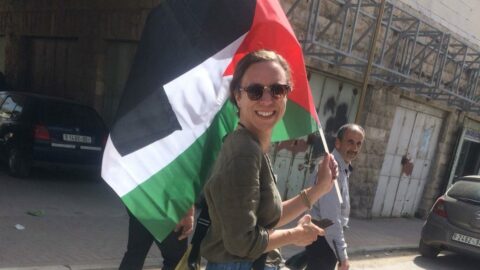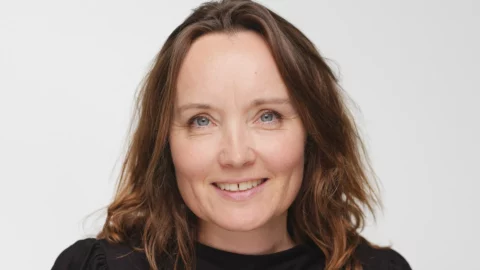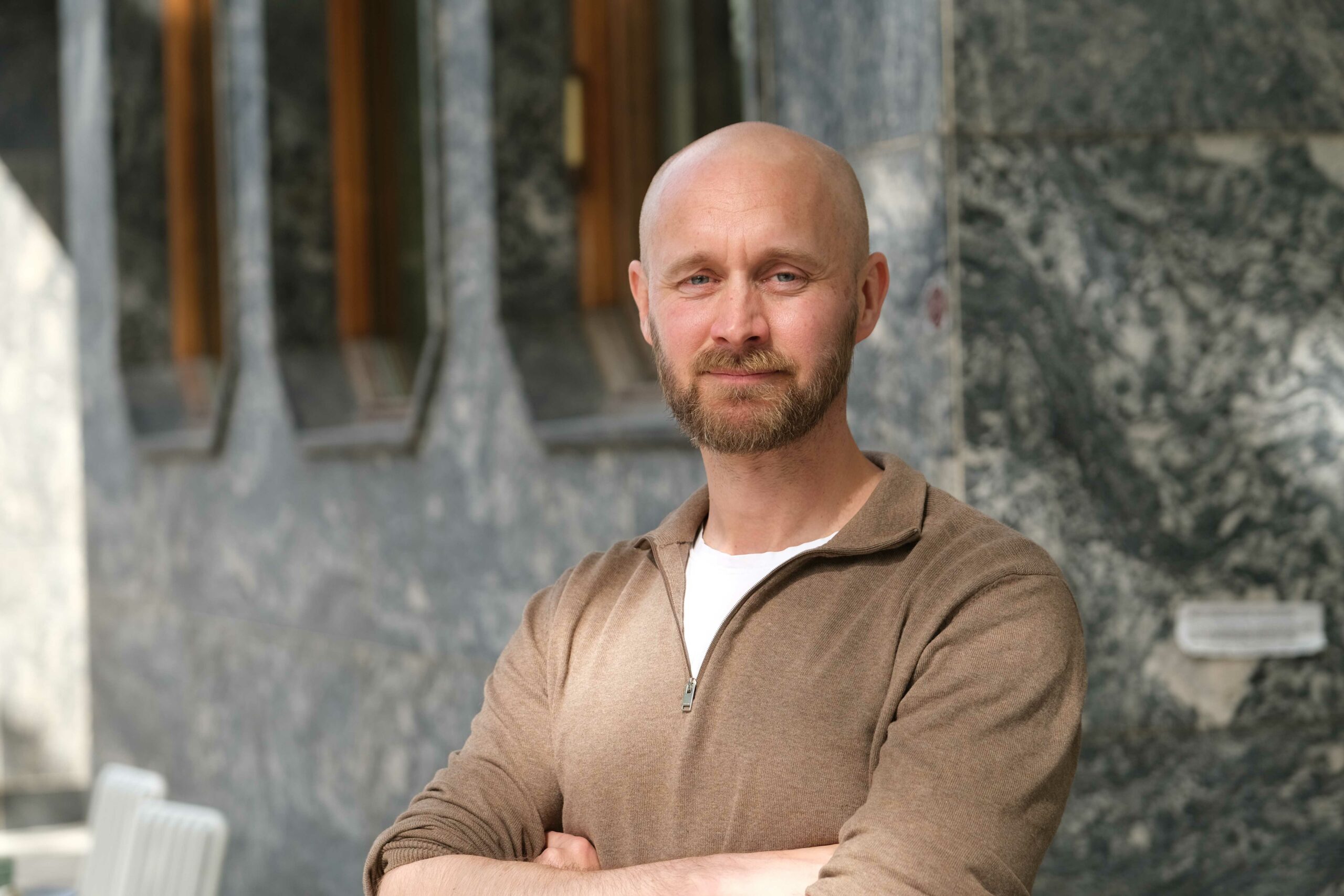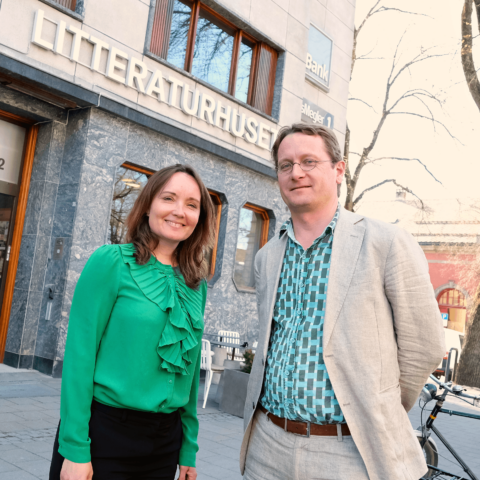Finding Al Khalil
Publisert den 6. nov 2018
I forbindelse med Arabisk litteratur- og kulturuke publiserer vi en tekst av skribent og Friby-koordinator Adria C. Scharmen. I teksten deler Scharmen sine tanker fra et opphold som frivillig i Palestina.
For almost two months I slept on a mattress on the floor, the pillow a bit too hard for my liking. With Mickey Mouse on the walls, the room was a makeshift arrangement my “host mother” fixed up for me in her families’ little business, a day care/nursery where every morning I woke up to screaming toddlers, crying inconsolably as their parents dropped them off on their way to work. It was as real and as surreal as that, in this room in an apartment building in Hebron, the West Bank, Occupied Palestine.
The truth is most days I had woken up before the children started arriving. Adhan, the early morning call to prayer would usually call me to some kind of woken state, sometimes slowly swaying me out of dreams and others ready for it, awake right before it, as if waiting for its soothing melancholy to put me back to sleep. I recall it, as well as the other 4 times when throughout the day it would bring me to a state of awareness i only experienced there.
The reason for me being there was a bit unclear at first, muddled by the ego satisfying idea of volunteering. But sometime along the way it became something else, something much bigger than I could have ever planned for. It became one of those episodes that divide one’s life in a before and an after. I arrived unaware and became throughout my stay aware of so much, guided by my anthropological eye and a very new and immature interest in Rumi and his life I embarked in what he would probably call “polishing my heart”.
Ironically, and given I was reading this in the book The Essence of Rumi, it stated something like “the Sufi knowledge does not come from studying books, as for scholars. Instead they polish their hearts until they have removed all traces of greed, desire, envy and hatred. A pure heart is without doubt like a polished mirror, open to receive an infinite number of images… it perceives beauty directly, at every moment.” Slowly and with the help of Rumi, in this strange but friendly bustling Arab town, the least expected place for this, I started polishing my heart to perceive beauty at every moment.
I must admit, at first it was very difficult to find this beauty in what I saw. I didn’t like the feeling of being a tourist observing tragedy, taking pictures of camps turned ghettos, where displaced people have been living for 70 years or having to cross a checkpoint to go from neighborhood to neighborhood into an illegal jewish settlement within the city center. But I especially didn’t like the hopelessness of being just an outsider, able to move where I pleased, to witness the beauty in the horrendous, only to leave in the end, back to my privileged life.
In addition, Hebron was cold, something I naively was trying to escape, the days were short in March still and there was trash everywhere. My patience was tested often those first days, feeling my time was being “wasted” that I was not being “used” to my full potential as a volunteer. But I soon realized that I had no right to have any kind of expectations or judge the situation from where I was coming when the context was so different. I was privileged, that was a fact that slapped me in the face every single day, and thinking I had so much to teach them was part of it. But slowly I allowed myself to relax and let things fall into place, those were the lessons I was there to learn.
By my second week I had started teaching yoga at a local gym, I was running workshops on community building at one of the universities and had English classes at an all girls middle school. I later had an attempt at creative writing and upcycling classes, both a bit too foreign to succeed. In retrospect, the topics weren’t so important, it was the attitude that mattered and the connection with the students. Who more often than not blew my mind with their proud comments in fluent English. The days were complemented with invitations to dinners, birthday celebrations, presentations and fairs at the universities. We would often socialize at the end of the day over a water pipe and some lemonade with mint, talking and sharing impressions at a record pace, everyone overwhelmingly eager to get to know each other. Reflecting on each others’ experiences, as we slowly polished our hearts and found ourselves in someone else’s story.
These sessions were humbling in every word, both foreign and local. Later I found myself reading a quote from Erich Fromm which coincidentally talked about how “the development of man’s intellectual capacities have far outstripped the development of emotions… the majority have not yet acquired the maturity to be independent, to be rational, to be objective. They need myths and idols to endure the fact that man is all by himself…” (Escape from Freedom). This resonated with what Rumi talked about over a thousand years ago. Unfortunately, humankind is still struggling with the same challenges, forgetting to nurture the full spectrum of knowledge, especially that one which will set our hearts free.
Traveling to Hebron or Al Khalil in Arabic (meaning the soul mate or good friend) allowed for a good balance of knowledge collection. It gave me the time to, not only read books, but to get to know and relate to other human beings as well as truly feel their presence and reflect on their effect on me. I had time to question my own beliefs and judgments, to reflect truly on what it means to be scared, angry, lonely, envious, all feelings stemming from fear, but also tolerant, honest, kind, trusting, understanding all leading to the great feeling called love. It is this kind of knowledge that I began to be able to recognize while in Al Khalil. The knowledge we get from smiles, from handshakes, from people with ordinary expressions in extraordinary situations. Nothing fosters empathy (or “polishes our hearts”) as successfully as these types of interactions.
In conclusion, I believe my time in Hebron became somewhat of a spiritual journey, but like Yuval Noah Harari says “The spiritual journey is always tragic, for it is a lonely path fit only for individuals rather than for entire societies.” (Homo Deus) It is in loneliness that we are able to truly observe and reflect, individual self-inquiry is crucial in making any experience valuable and in starting the greater societal change we aspire for. In retrospect beauty is even more visible, for it is now, from far away, that I can see it shine in every memory, missing even the charm of my makeshift bedroom and the screaming children in the mornings, while appreciating the wet and short autumn days of Trondheim.
Baldock, John. The Essence of Rumi, Arcturus Publishing Limited; Reprint edition (May 15, 2017). London.
Fromm, Erich. Escape from Freedom, “Foreword II” in Escape from Freedom was first published in: New York (Avon Books) 1965, pp. XII-XVI.
Noah Harari, Yuval. Homo Deus: A Brief History of Tomorrow. February 21st 2017 by Harper. pp. 188.




